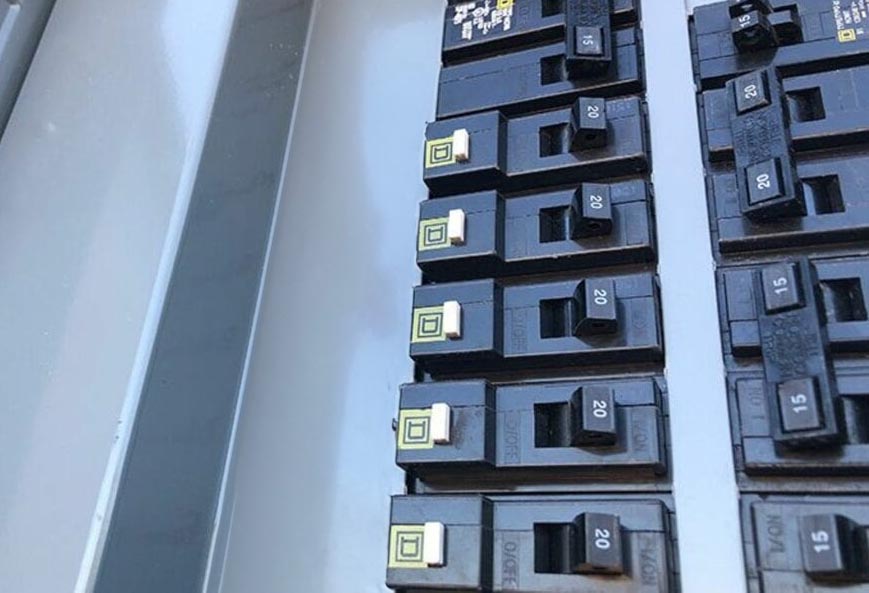If you’ve ever experienced a sudden loss of power in a section of your office or facility, it’s likely due to a tripped circuit breaker. While this can be frustrating, it’s important to understand that breakers are designed to protect your electrical system from damage. Here’s a closer look at why breakers trip and what it means for your business.
1. Overloaded Circuits
One of the most common reasons for a breaker to trip is an overloaded circuit. This happens when too many devices or appliances are drawing power from the same circuit, causing it to exceed its capacity. When this occurs, the breaker trips to prevent overheating and potential fires.
Solution: Distribute the load by plugging devices into different circuits or consider upgrading your electrical system to handle the increased demand.
2. Short Circuits
A short circuit occurs when a hot wire comes into contact with a neutral wire, causing a sudden surge of electricity. This can create excessive heat, which the breaker detects, leading to it tripping immediately to prevent damage.
Solution: Short circuits can be dangerous and often require professional inspection and repair to ensure safety.
3. Ground Faults
Similar to a short circuit, a ground fault happens when a hot wire touches a grounded component, such as the metal case of an appliance. This can cause an imbalance in the circuit, leading to a breaker trip.
Solution: Ground faults are a serious issue, particularly in wet environments like kitchens or bathrooms. Ground Fault Circuit Interrupters (GFCIs) are designed to prevent these faults by tripping before a standard breaker would.
4. Faulty Appliances
Sometimes, the issue isn’t with your wiring but with the devices themselves. Faulty appliances or equipment can draw excessive current or cause short circuits, leading to frequent breaker trips.
Solution: If you notice a particular appliance causing trips, it may be time to repair or replace it.
5. Aging Electrical System
Older electrical systems may not be equipped to handle modern energy demands. As components wear out or become outdated, they may cause the breaker to trip more frequently.
Solution: Regular maintenance and potential upgrades to your electrical system can help prevent trips and keep your business running smoothly.
Conclusion
Circuit breakers play a critical role in safeguarding your business from electrical hazards. While a tripped breaker can be inconvenient, it’s a sign that your system is doing its job. Understanding the reasons behind these trips can help you address the root cause and ensure a safer, more efficient workplace. If your business experiences frequent breaker trips, it’s wise to consult with a professional electrician like Eric Gandler Development Electric to evaluate your electrical system and provide tailored solutions.
For reliable commercial and industrial electrical services in the Albany Capital District, contact Eric Gandler Development Electric today. Let us help keep your business powered safely and efficiently!


